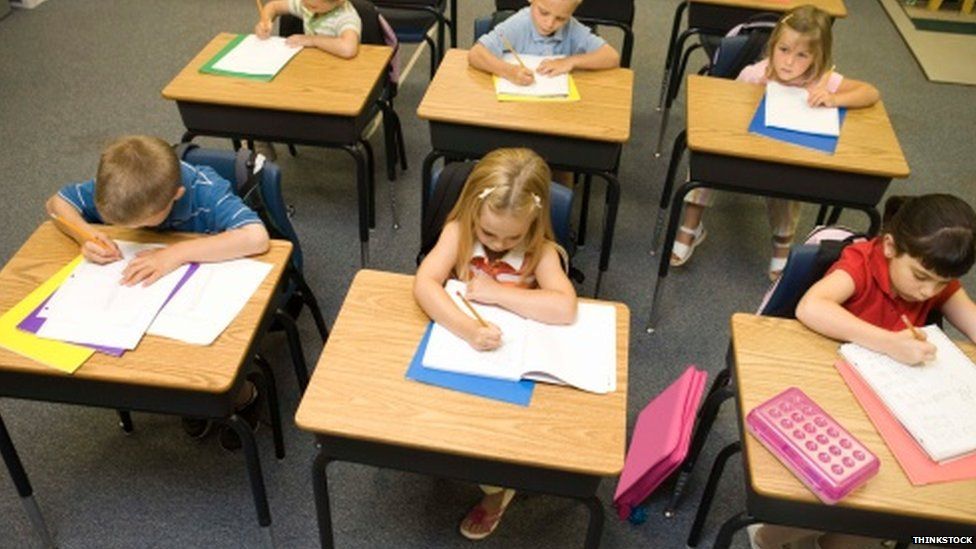Primary tests in England too hard, say head teachers
- Published

New national tests to be taken by 11-year-olds in England are too hard, say head teachers.
Members of the National Association of Head Teachers said pupils previously thought to be good performers may soon be deemed to be failing.
The new national tests, being sat in early May, are designed to measure pupils' grasp of the toughened national curriculum.
Ministers say tests allow teachers to spot when pupils need more help.
Heads gathering for the union's annual conference in Birmingham are urging the government to work with them to set up a new assessment system for next year.
Outgoing NAHT president Tony Draper said pupils had done two years of this curriculum but were being tested on four years of material.
"It will be devastating for children who have been told they have been performing well to suddenly be told they are sub-standard."
Amanda Hulme, who heads assessment for the NAHT, said: "The grammar they are doing is so difficult.
"I have a degree in English language and there were questions in there I could not answer."
Earlier, NAHT head Russell Hobby said testing in primary schools was in chaos and distracting to pupils.
The NAHT also highlighted a lack of clarity on standards and contradictory guidelines, plus the late publication of materials.
'High pressure'
It also highlighted the accidental publication of the content of the spelling, punctuation and grammar test and the cancellation of this year's planned baseline test for pupils in Reception following unsuccessful trials.
Speaking ahead of the conference, Mr Hobby said: "Testing has a role to play in the assessment of children, but the poorly designed tests and last-minute changes we have seen this year do not add value to teaching.
"Increasingly, parents and teachers agree that high-stakes statutory tests like Sats can actually make it harder to find out what children are really learning and to improve their education.
"Our conversations with parents show that they want tests and assessments which help schools understand their children - on a regular basis with lower stakes - rather than what are fast becoming high-profile, high-pressure exams."
The incoming NAHT president, Kim Johnson, is to highlight, in his speech, how pressures being placed on children and young people are having an impact on their mental health.
Discussion
And he will say educational funding is being used to prop up social care and health services in schools.
"The impact on our budgets is significant, yet we daily make decisions that must address wellbeing, basic food and clothing needs, and medical care to give some children the same start to the day that others take for granted," he will add.
The head teachers' union also plans to debate issues such as forced academisation, assessment and British values in schools, over the weekend.
A Department for Education spokesman said: "Parents rightly expect their children to leave primary school having mastered the basics of literacy and numeracy, and that is why we have tests at the end of Key Stage 2.
"A high-quality education in English - and the ability to communicate effectively - is an important part of the government's commitment to extend opportunity to all.
"All of the documents necessary for the tests and teacher assessments at Key Stage 2 have been available since September 2015.
"We have also recently published materials to support teachers making their judgements.
"We are always willing to engage in discussion with teaching unions to ensure that this transition year goes smoothly."
- Published22 April 2016
- Published10 May 2016